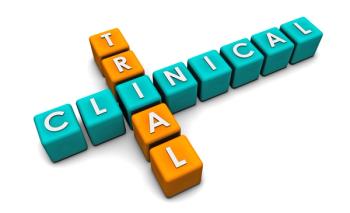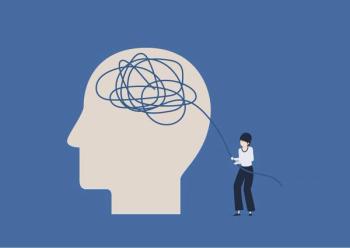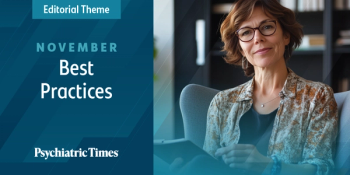
Developing Your Skills at the Intersection of Work and Psychiatry
Here’s how the Academy of Organizational and Occupational Psychiatry can help you connect with your fellow psychiatrists about complex mental health issues in the workplace.
Picture yourself at a large psychiatry conference, looking to connect with others interested in the mental health/work connection. You are at a sponsored lunch; you see that your table mates know each other and are talking over the presenter, who is on his 30th of 70 slides. Soon the lines will form for questions, which everyone except those in line know are not really questions.
The content presented is safe and so vanilla that you could have read it in a dated textbook. You also know soon after the presentation, the expert will flee out a side door and you will not see them again for the rest of the conference. Is this your experience?
What if there were a different way to connect and increase your knowledge? What if there were a place where you could really engage with your colleagues, the speakers, and topics in a meaningful manner? And what if all of this would occur in a setting that is elegant yet warm and welcoming?
For 25 years, the Academy of Organizational and Occupational Psychiatry (AOOP) has been a supportive network of psychiatrists who gather for such conferences. We are a dynamic group of professionals who illuminate the
We cover
Who We Are
Work—what we do and how we do it—is changing rapidly. At AOOP, we are committed to creating a psychiatry of work that is relevant to both working individuals and employers. Since 1989, our conferences have featured a collegial environment that is conducive to practice and scholarship. With increasing awareness of the changing nature of work and the centrality of work relative to mental health, we hope to reach an increasing number of practitioners.
Our group values the ability to adapt—specifically to figure out ways to apply our values to new and challenging situations in ways that can help our members. The recent impact of
Additionally, the AOOP has monthly coaching calls, responding to the fact that many of our members face interesting problems and issues that cannot wait for an annual meeting. The COVID-19 lockdown inspired us to find ways to deepen these virtual connections. We began quarterly clinical case conferences that featured case discussions that were longer and more detailed than the coaching calls. This ad-hoc innovation is now a permanent benefit of being an AOOP member.
Other recent innovations include our website, which allows members to explore collaboration and for those interested in an organizational or occupational application for psychiatry in the broader public to find a resource or ask a question. It is also a place to track current events and past and future programs, as well as our writings and presentations.
Relatedly, in Psychiatric Times,™ we have been active in discussing work-related issues—for example, traumatic brain injury, the meaning of work, retirement, and more in the
How We Began and How We Developed
AOOP began in 1989 as an informal exploratory meeting of a small group of psychiatrists who were attending the much larger American Psychiatric Association (APA) Annual Meeting. We met for several hours, introducing ourselves and very briefly describing our involvement with the workplace. It was apparent that many of us were addressing a wide variety of issues in the workplace and most of us did not know any other psychiatrists who performed similar tasks. We decided as a group to have a follow-up meeting.
In early 1990, approximately 15 of us met for several days in Tampa, Florida. We each discussed the work we were doing with various organizations, including work stress, psychiatric disability, substance abuse, violence, dysfunctional executives, conflict management, resilience, team cohesion, leadership, cost-effective psychiatric treatment, and more.
We decided to meet again in New York City in spring 1990 to create a formal organization called AOOP. We decided to meet annually for 2 or 3 days in the winter or spring. Peter Brill, MD, was chosen as the first president.
Almost all 13 founding members had devoted most of their career addressing problems in the workplace. Two members were medical directors of disability insurance companies; 2 were medical directors of IBM and Mobil Oil; 2 owned employee assistance programs; 1 worked for the state department; 1 was a forensic psychiatrist; 1 owned a disability evaluation company; 1 provided family business consultations; and 1 was a professor of psychiatry at a medical school.
Several conducted psychiatric fitness-for-duty exams, and most treated executives for psychiatric disorders. The rich diversity of workplace problems investigated by AOOP membership has remained one of our abiding strengths, allowing us to bring fresh perspectives to each other’s problems in the multiple venues we provide for sharing information.
The common thread among these psychiatrists was addressing problems that arose in the workplace. We were always assessing work function for both executives and employees. Were they able to perform the duties of their job? Were they resilient and able to cope with workplace stress? Do they have the ability to lead work groups or organizations?
We all decided to meet to discuss cases, ask each other for curbside consults, read and discuss relevant psychiatric literature, contribute to the literature by writing articles and books on workplace issues, and organize and present workshops for ourselves and at APA meetings.
Given the huge impact of workplace routines and working conditions on mental health, it is a wonder that an organization like the AOOP had not been started long before 1990. In the 30-plus years since its founding, the scope of our interests could be described as falling in these 5 “psychiatry and work” categories:
- Disability and illness
- The psychiatrist as a leader
- The organization
- Psychiatry and work as a vital component of adult mental health in psychotherapy/analysis
- Psychiatry and work within the military
Who We Hope to Be
We are excited about expanding our winning formula by expanding our membership and sharing some of our best practices (like our monthly coaching calls) with the psychiatric community at large. All new members to the AOOP will find that they will be welcomed into an organization that can promote their own career goals and enhance their sense of connection, which we know is the cornerstone of well-being for anybody—maybe especially for psychiatrists!
We ask questions of each participant in a group format intended to provoke thought and self-reflection as a professional in the field:
- Where are you now?
- How are you feeling about your career, your practice, and the balance of the personal and the professional in your life?
- Where do you want to be in the next 1 to 5 years?
- Are you doing the professional work that you would like to be doing? Is it satisfying, or is there something that you want or need to change?
- How can AOOP help you? What help, guidance, or support do you need?
For complex mental health issues in the workplace, it is refreshing that members can have detailed discussion with other professionals who grasp the nuances. Tackling such challenges together in a caring, informed, and adaptable professional organization like the AOOP can lead to rewarding careers of our own.
Dr Morrison is a clinical assistant professor of psychiatry at Rosalind Franklin University’s Chicago School of Medicine, and past president of the Academy of Organizational and Occupational Psychiatry. Dr Hammer is a psychiatrist in Anacortes, Washington, who specializes in general adult psychiatry, psychological trauma, and organizational and occupational psychiatry.
Dr Lanteri is owner and founder of Lanteri Coaching and Consultation, which provides executive coaching for physicians and health care leaders. Dr Brown is a department psychiatrist at the Boston Police Department and immediate past president of the AOOP.
Dr Couser is a consultant at Mayo Clinic in occupational medicine and in psychiatry, where he is the medical director of Mayo Clinic Rochester’s Employee Assistance Program. He is past president of the AOOP. Dr Cohen is a clinical assistant professor of psychiatry at Cornell University Medical College; a psychoanalyst; past president of the AOOP; and an occupational disability consultant to NYCTA, NYC Health + Hospitals, and MLS Groups, among other companies.
Dr Thomarios is a health care executive, business owner, and current president of the AOOP. Mr Rennella is senior associate editor at Harvard Business Publishing and is the author of The One-Idea Rule: An Efficient Way to Improve Your Writing at School and Work (Matt Holt Books; publication forthcoming).
Newsletter
Receive trusted psychiatric news, expert analysis, and clinical insights — subscribe today to support your practice and your patients.







